Sorry, BC and Ontario, Alberta Is Canada’s New Weed Capital
Credit to Author: Manisha Krishnan| Date: Wed, 03 Apr 2019 13:17:58 +0000
It’s been five and a half months since Canada legalized recreational weed and, up until a recent trip to Alberta, I hadn’t been able to buy any in person. As a born and bred Vancouverite who now calls Toronto home, there’s something that feels ironic about that.
When the federal government introduced the Cannabis Act in April 2017, it left retail rollouts up to the individual provinces and territories. For the most part, (with the notable exception of Quebec), the provinces have mirrored cannabis sales after their liquor retail models.
Many provincial leaders expressed concerns about not being able to meet the government’s planned launch for legal weed sales, which was originally July 2018. That date got pushed to October 17, but BC and Ontario—both provinces with the largest illicit cannabis markets—still lagged. The former has a couple dozen legal dispensaries for the entire province, while the latter has had major hiccups with online sales and finally opened its first stores on April 1, after Doug Ford’s government scrapped the Liberals’ old plan. For now, there’s a single shop to service all 2.7 million residents of Toronto and 10 shops for the entire province of Ontario and its population of 14.3 million.
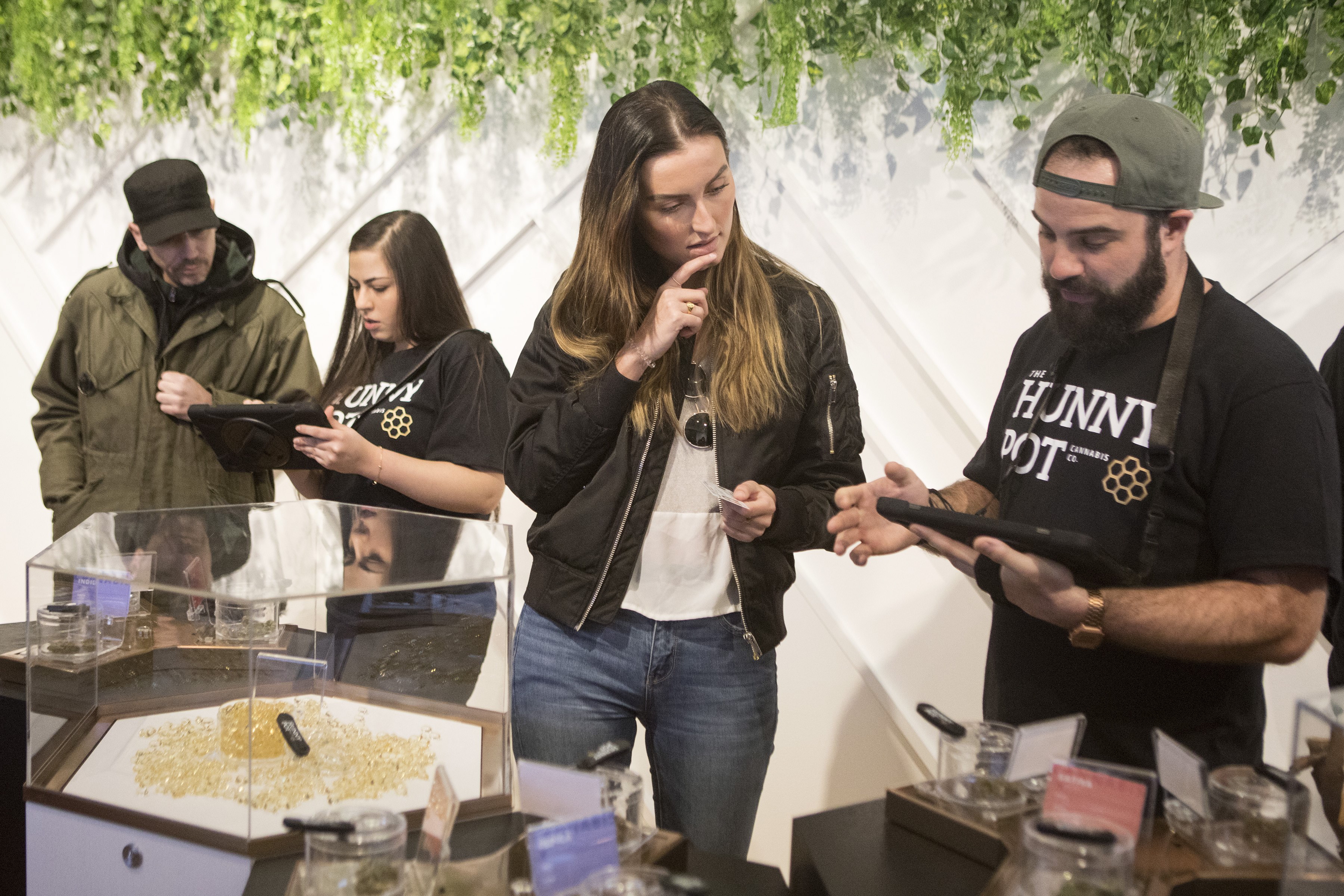
In April 2017, Alberta Premier Rachel Notley told the Canadian Press that hitting the July 2018 timeline would be a challenge.
“If we get it right, it can work, but I also know that there is a lot of heavy lifting to be done to get there,” she said. “It may be simple to say, ‘yeah, let’s legalize marijuana.’ Administering it is actually very complex.”
Sales in Alberta have steadily increased, and outperformed the rest of the country in November, December and January.
Fast-forward two years and, though the weed rollout is not perfect in Alberta (nor anywhere in the country), the province has gotten a lot of things right. With 75 privately-run cannabis retailers, it has the most legal stores in the country. The only reason there aren’t more is the Alberta Gaming and Liquor Commission has temporarily halted issuing new licences due to the country-wide weed supply issues. According to Statistics Canada, Albertans spent $7.3 million on legal weed in the first two weeks after legalization, behind Ontario ($11.7 million) and Quebec ($9.4 million). But more recent Stats Can figures show sales in Alberta have steadily increased, and outperformed the rest of the country in November, December and January, while sales in Ontario and BC have tapered. Of the $205.6 million in legal weed sales in Canada from October to January 2019, Alberta—population 4.3 million—made up $47.7 million, while Ontario and BC had $38.3 million and $6.6 million respectively.
The province is also home to licensed producer Aurora Cannabis, which has several major projects there including Aurora Sky, an 800,000 square foot facility located at the Edmonton airport; Aurora Polaris, a 300,000 square feet product development hub for edibles being built next to Sky; and Aurora Sun, a 1.2 million square foot grow being built in Medicine Hat.
When it is completed, Sun will serve as the largest production facility in Canada, and potentially the world. The LP also has a modest 55,000-square-foot grow in Cremona, Alberta. Its flagship store is located in West Edmonton Mall and it owns a 25 percent stake in Alcanna, which operates five weed retail shops in Alberta. All of this has translated into 1,000 jobs—10 percent of which Aurora said have gone to former oil and gas employees. Another 450 people have already been recruited to work at Aurora Sun, and the company said many more hires are expected once Sun and Polaris are built.
As a result, the province known for its socially-conservative bent is emerging as Canada’s legal weed capital, leaving BC and its world famous bud (valued at billions on the black market), and Ontario, the most populous province, in the dust.
A fledgling retail scene
Hundreds of grey-market dispensaries cropped up in BC and Ontario in the years preceding legalization. Despite the fact that they were federally illegal, Vancouver and other BC municipalities regulated these pot shops, living up to the province’s reputation of being Canada’s unofficial weed haven. Toronto opted for police raids in an attempt to shut them down, with limited success.
This kind of highly visible underground weed scene didn’t exist in Alberta.
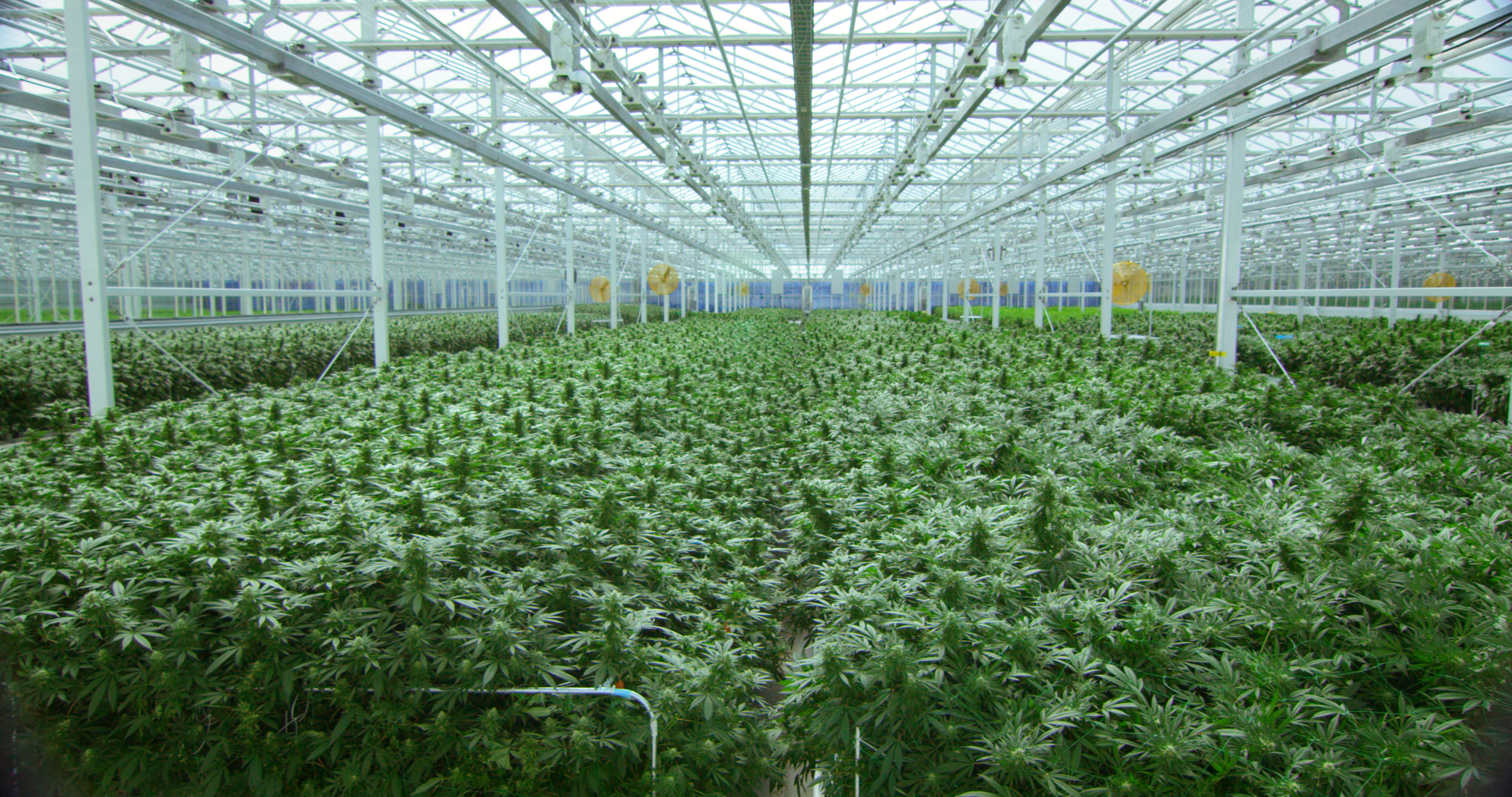
Now, it has 75 legal stores, the most in the country. A third are located in Calgary.
Within a couple hours of landing in Cowtown, I mused at the range of private liquor stores, including one advertising late-night deliveries and another with bright purple signage and the word “discounter” in all caps.
As an Ontarian stuck with a monotonous LCBO monopoly for booze, it was kind of refreshing to see Alberta’s free market on display. But the rules around weed shops, particularly around marketing and advertising, are much stricter. Members of the public aren’t even allowed to see through the windows, so they’re papered over or blocked with artistic displays. I wasn’t expecting much variety.
But Queen of Bud proved me wrong.
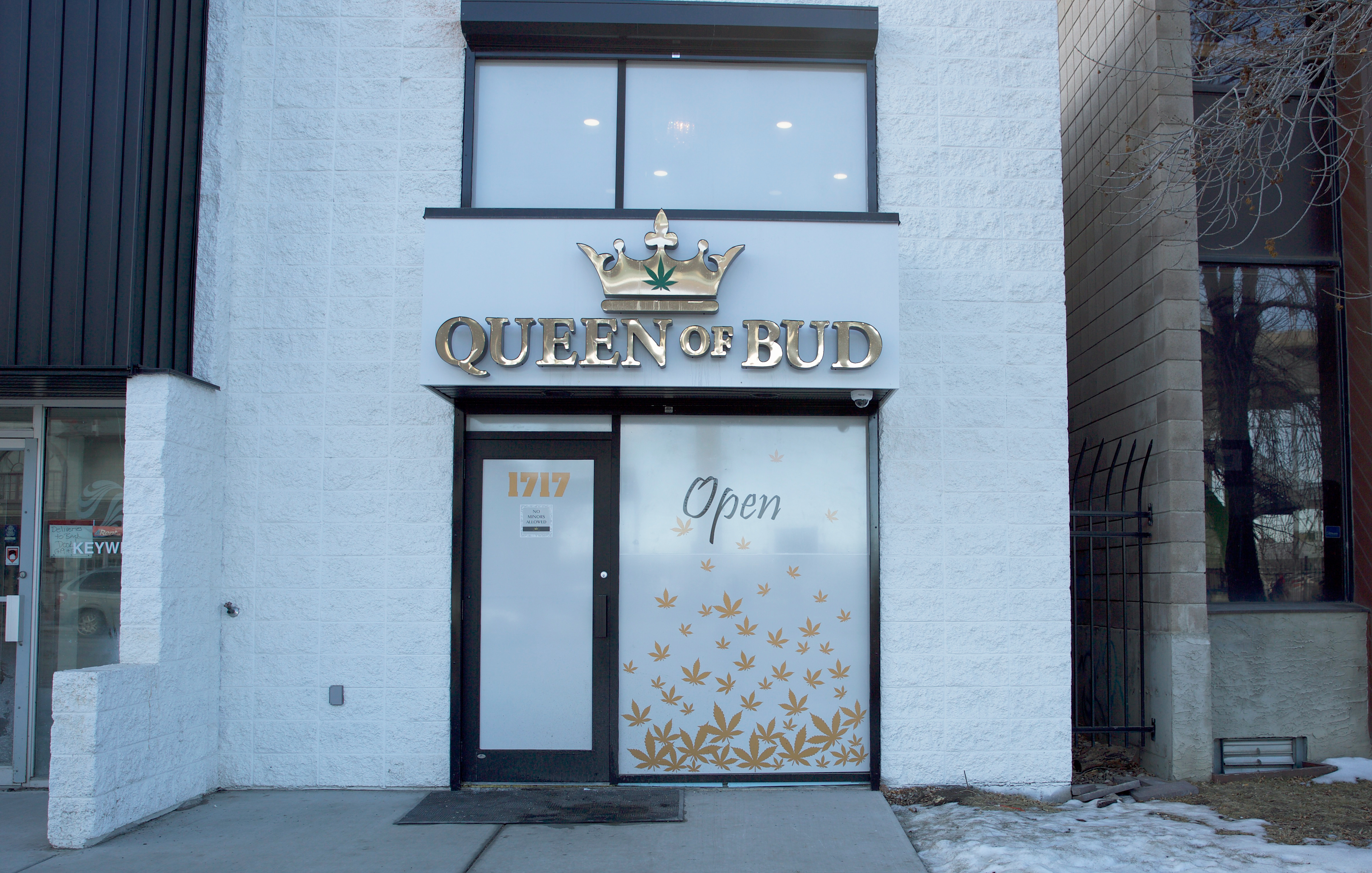
Once I entered the shop, located in the Sunalta neighbourhood southwest of downtown, I felt like I should be getting a manicure or a facial instead of buying weed.
The first thing I noticed was how the luxe decor—the 2,500-square-foot space is bright and white, with chandeliers hanging above the cash registers, plush, royal blue seating, crown molding, a waterfall, and a floor-to-ceiling wall of fabric flowers ideal for selfies.
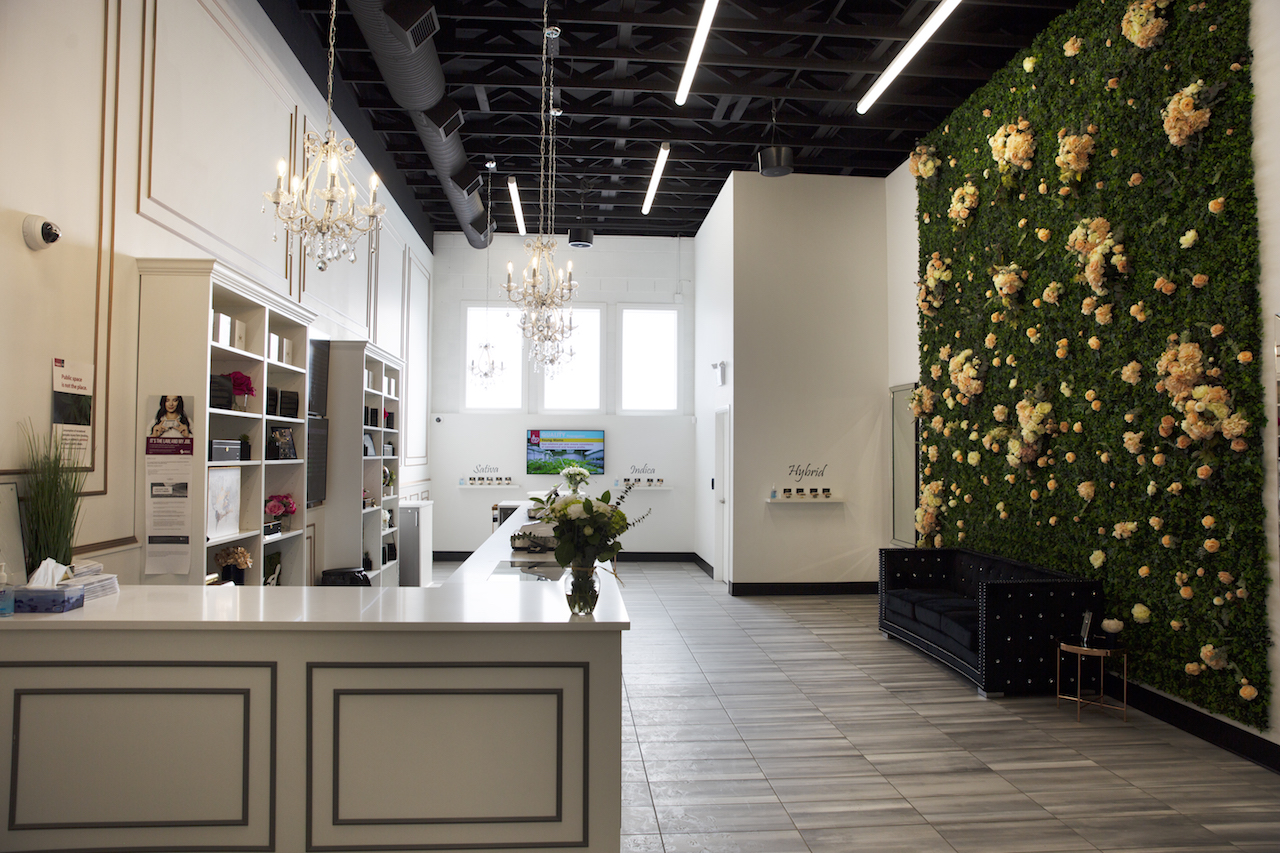
Owner Ashley Newman is the self-proclaimed queen and she’s unapologetic about her girly store.
“I just wanted it to be very glamorous,” Newman, 28, told me from a white leather chair in her office, which is outfitted with affirmations like “boss babe” and “conquer the world.”
“I remember going to a grocery store praying that the $2 macaroni [payment] would approve.”
Newman uses medical cannabis to treat her pain that stems from endometriosis, a condition that causes uterine tissue to grow outside of the uterus. She referred to Queen of Bud as a sanctuary, “a place where a woman can go and feel comfortable and feel safe.”
Newman opened her store a week after legalization. The single mother of two little girls described herself as a “serial entrepreneur”—she previously ran an asbestos removal company, but said after her divorce four years ago it was difficult to make ends meet.
“I remember going to a grocery store praying that the $2 macaroni [payment] would approve,” Newman said. While she said normally it takes years to pay off the debt incurred by starting a new business, she was able to pay off $460,000 within the first two months of opening Queen of Bud. She won’t share sales numbers, but said the company is doing three times what she forecasted in her business plan.
“Once everyone saw the brand, all the big guys offered to buy me,” she said of the licensed producers.
“I could sell and probably retire and live off the interest and I still feel in my heart that there was more that I wanted to do.”
Her plan is to run a cannabis empire. She already owns locations for three more dispensaries, plus an eatery, and a spa.
Newman said opening day was “so exciting.” There were businessmen coming from the nearby LRT station, and wealthy housewives from the affluent Aspen Woods community. There were complaints about the long lines. Mondays are the busiest days because that’s when new shipments come in, she said.
“We have lineups out the door.”
Like most retailers I spoke with, supply is an issue for Queen of Bud. Newman said $150,000 worth of product a week is a comfortable amount, but they usually receive much less than that.
“We barely have enough to get through the week.”
The Alberta Gaming and Liquor Commission sends out a list of inventory every week and stores request how many shipments of each product they want. But business operators told me they order more than what’s available in the hopes that another shop won’t place an order and they’ll get an extra batch or two. The week of our interview, Newman got $43,000 of product, the previous week it was $70,000.
“We barely have enough to get through the week,” she said. In November she had to reduce hours to three days a week.
Experts say there are a number of factors contributing to the shortage including Health Canada not issuing enough licences in advance of legalization, producers under-delivering on supply agreements with provinces, and challenges mass producing cannabis—which can be a fickle plant—for the first time. Newman, who sits on a board with the major players in Alberta, said LPs are also selling to Saskatchewan over Alberta, because they can make a higher premium. To turn a profit, Newman said she sells weed for $12-$15 a gram.“You’re either going to base it off quantity or margin. Quantity we can’t really do.”
Oil and gas transition
The handful of other chains I checked out in Calgary each had their own vibe from sleek, to fun, to wellness-oriented, but they share similar qualities: clean, uncluttered, and non-threatening. There are no signs of the old school pot culture—no Bob Marley posters in sight. Some have menus on LCD screens, most have sensory jars for people to see and smell the various strains, many of which are marked “out of stock”.
Jason Marshall’s store is huge. Green Earth Cannabis, located in the Calgary’s northeast quadrant, is 4,100 square feet. It’s located in a strip mall that also contains a janitorial supply store and a soon-to-be laser tag complex. There’s also a police station across the street, which Marshall finds reassuring.
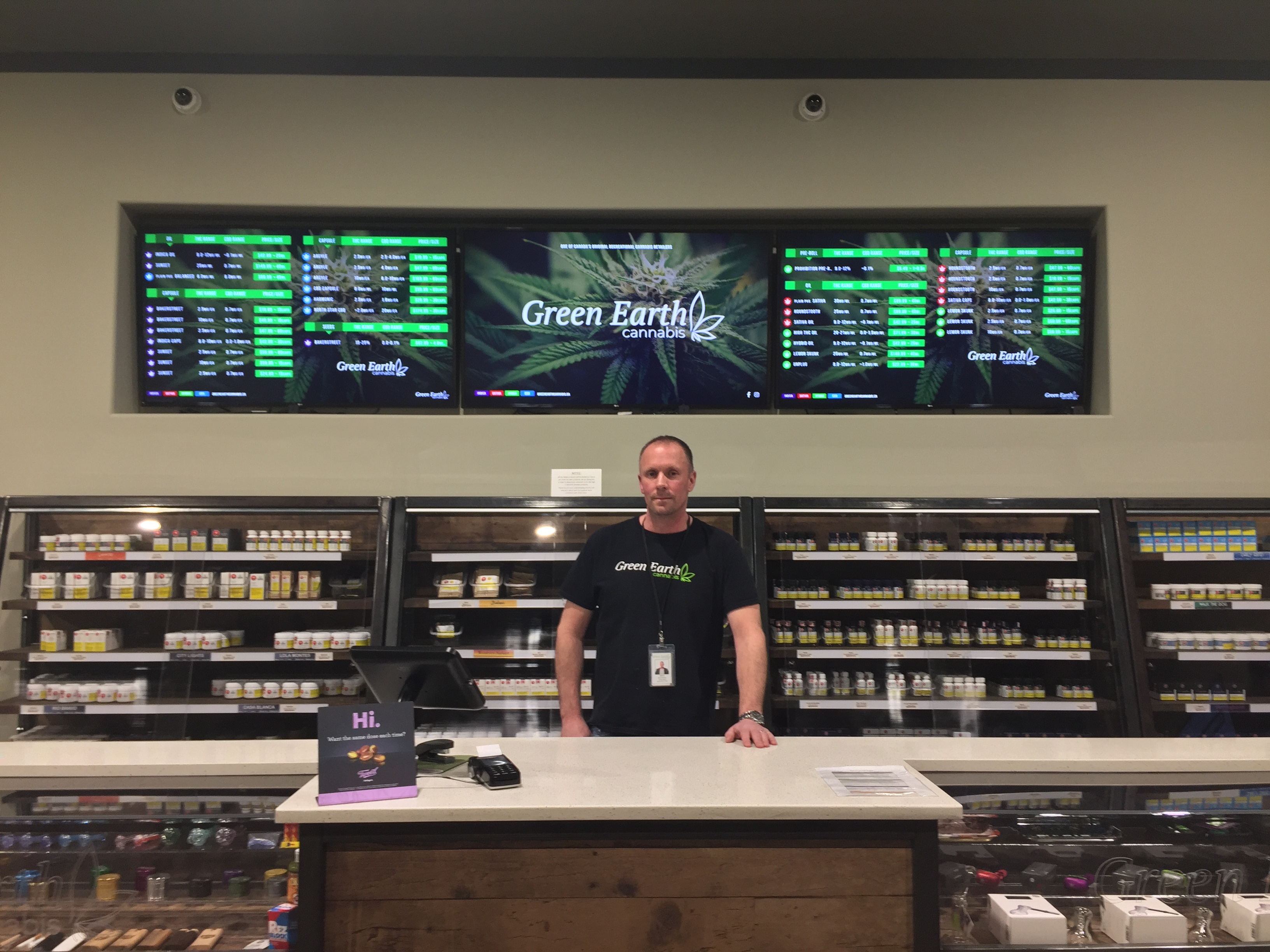
“The response time would be like 30 seconds,” he said while showing me around, noting sometimes cops park outside the store just to observe.
Marshall said he and his wife “winged it” , with their respective backgrounds in design and hers in IT. They spent $400,000 renovating the space, and opened their doors in December. Since then, he said they’ve done more than half a million dollars in sales.
But Marshall said “it’s not the pot of gold that everyone thinks it is.”
According to him, he’s on track to do $2 million in revenue this year, though he hopes that number will eventually get to $5 million.
For Marshall, who said he made $120,000 to $140,000 working as a journeyman welder in the oil and gas industry, his take-home pay is a pay cut. Still, he said the change is nice, noting after 20 years in oil and gas his back pains have worsened, but medical weed provides him relief.
“There’s lots of parties, there’s swag and people are happy. Then the oil turns.”
That sentiment was echoed by Kim Shalagan, western health and safety manager for licensed producer giant Aurora, who is based in Edmonton.
The 34-year-old worked in oil and gas from the age of 20 until she was laid off in January 2017. She recalled swaths of people at her former company being let go in one sitting.
“Within oil and gas you learn very quickly that there’s a strong ebb and flow. You would go through periods where you work very hard, long hours, long days… There’s lots of parties, there’s swag and people are happy,” she told VICE. “Then the oil turns and… the mentality across the company changes quite drastically.”
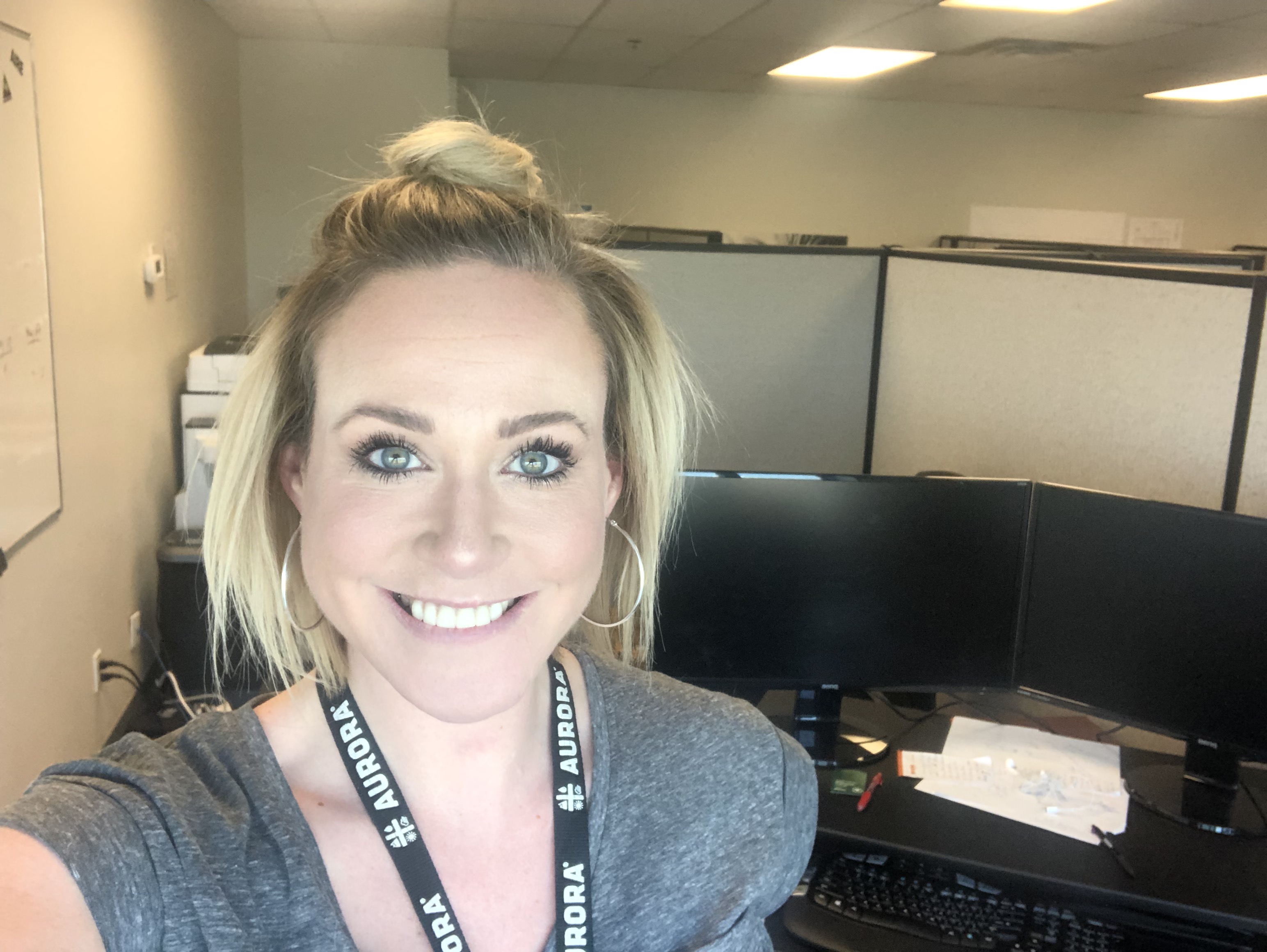
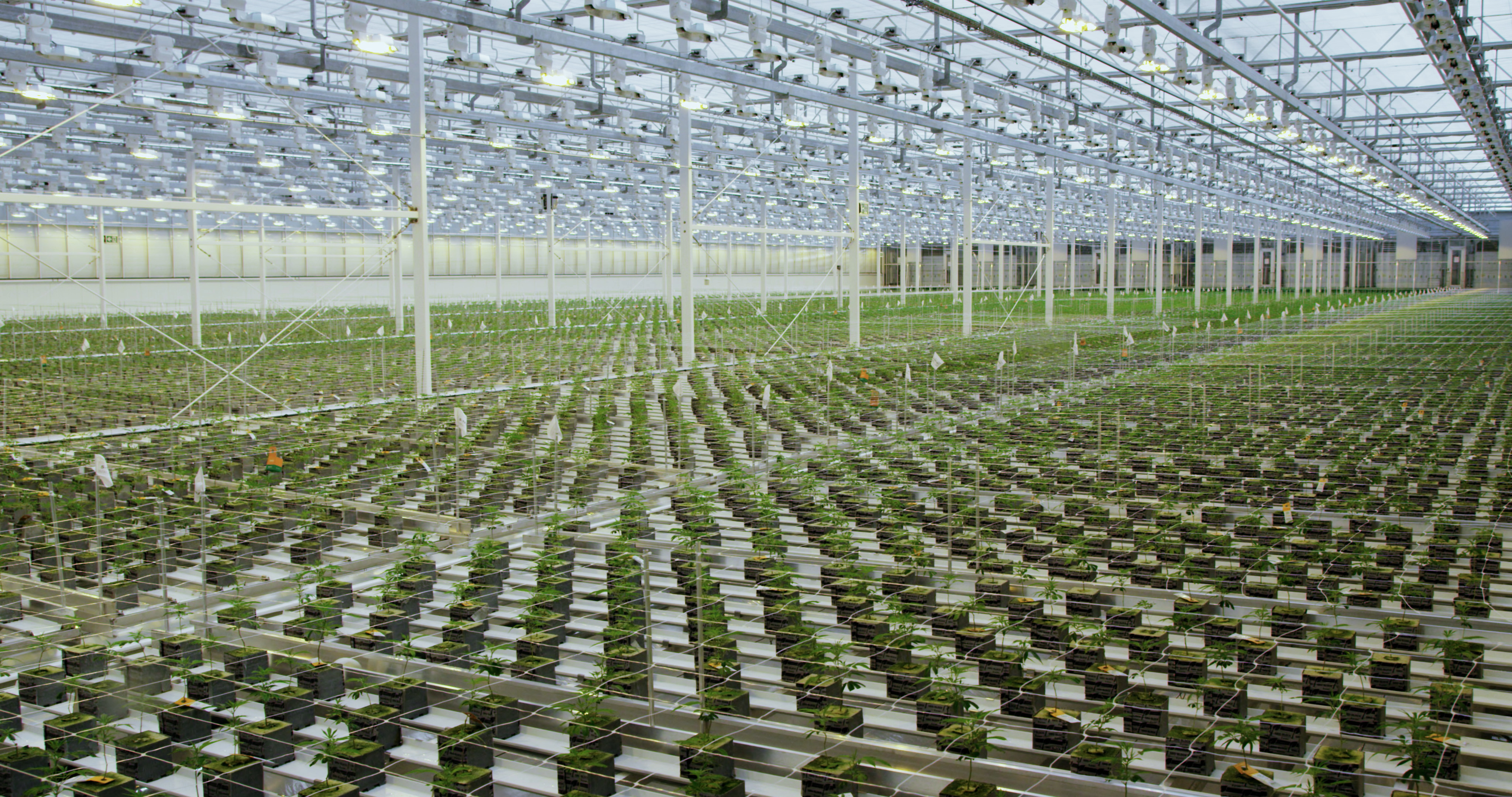
Although Shalagan said on a purely salary basis, she’s not making as much money as she was in her former industry, she said there are major cultural benefits. For one thing, weed isn’t a taboo.
“As a safety person in my previous role if you heard anybody talking about cannabis at all it was a big red flag for everybody, it was a hard stop across that industry,” she said, explaining that drug testing is common in oil and gas.
But she also said it’s nice to be in a burgeoning industry that’s not an old boys club.
“For someone in my demographic and age range to be in a management role at this level is unheard of in a lot of oil and gas companies.”
BC and Ontario “shat the bed”
Speaking to a panel at a cannabis conference in Las Vegas last fall, Aurora CEO Terry Booth didn’t mince words about how he thought the provinces were handling legalization.
“I would say Ontario shat the bed the worst,” he said, according to the Financial Post . “Alberta had their shit together.”
It’s hard to argue with that assessment. But why are BC and Ontario so far behind?
Both provinces had changes in government prior to legalization—BC NDP leader John Horgan formed a minority government in July 2017, after defeating Christy Clark’s Liberals with a non-confidence motion. And Kathleen Wynne’s Ontario Liberals were handily defeated in a June 2018 election by a Conservative party with Doug Ford at the helm.
Despite telling CKNW BC would have no trouble meeting the original July 2018 deadline, the province only had one store open by legalization day—in Kamloops. Alberta had 17.
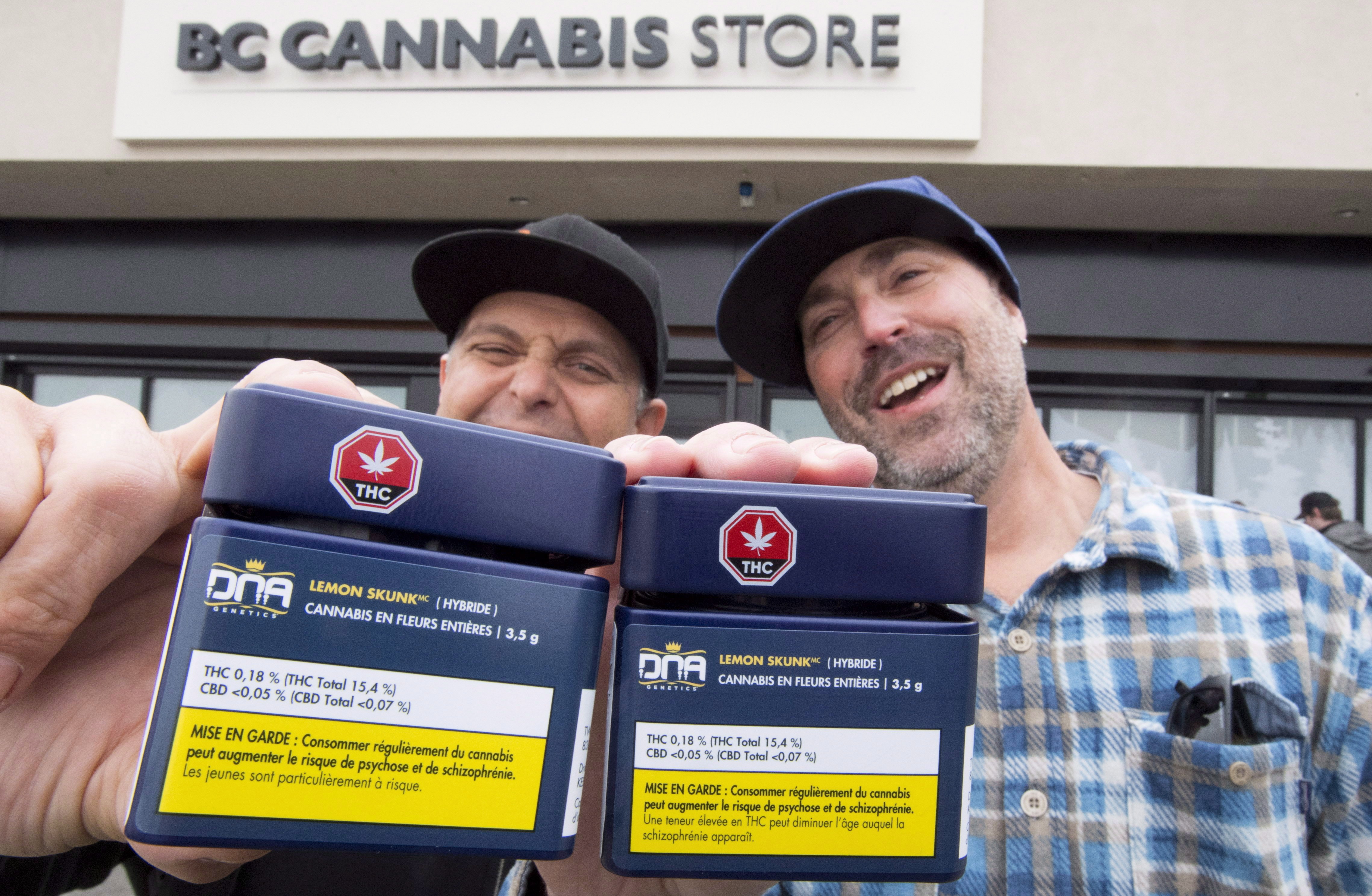
Today BC has 10 provincially-run stores and 14 private ones—only three shops are in Metro Vancouver, and the majority are in small towns and cities. Many grey market dispensaries, licensed by the city, shut down while awaiting approval.
“We had an expectation it would be a seamless transition, but that hasn’t been the case.”
Sales have been dismal. In October 2018, the province did $2.3 million in legal sales, but in January it only pulled in $1.9 million. BC’s illegal weed industry is estimated to be worth billions of dollars, which is why legalization was expected to succeed, but also why it may have failed considering how much bud is available.
In a year-end interview with the Victoria-based Times Colonist, Horgan admitted the province botched the rollout.
“We could have very much anticipated the demand,” he said. “I think we had an expectation it would be a seamless transition, but that hasn’t been the case, so I’m as concerned about that as the consuming public and we’re going to do what we can in the new year to start accelerating that.” Meanwhile in Vancouver, there seems to be constant quibbling between the city and cannabis advocates over where to host 4/20, the illicit dispensary closures, and even the smell of weed.
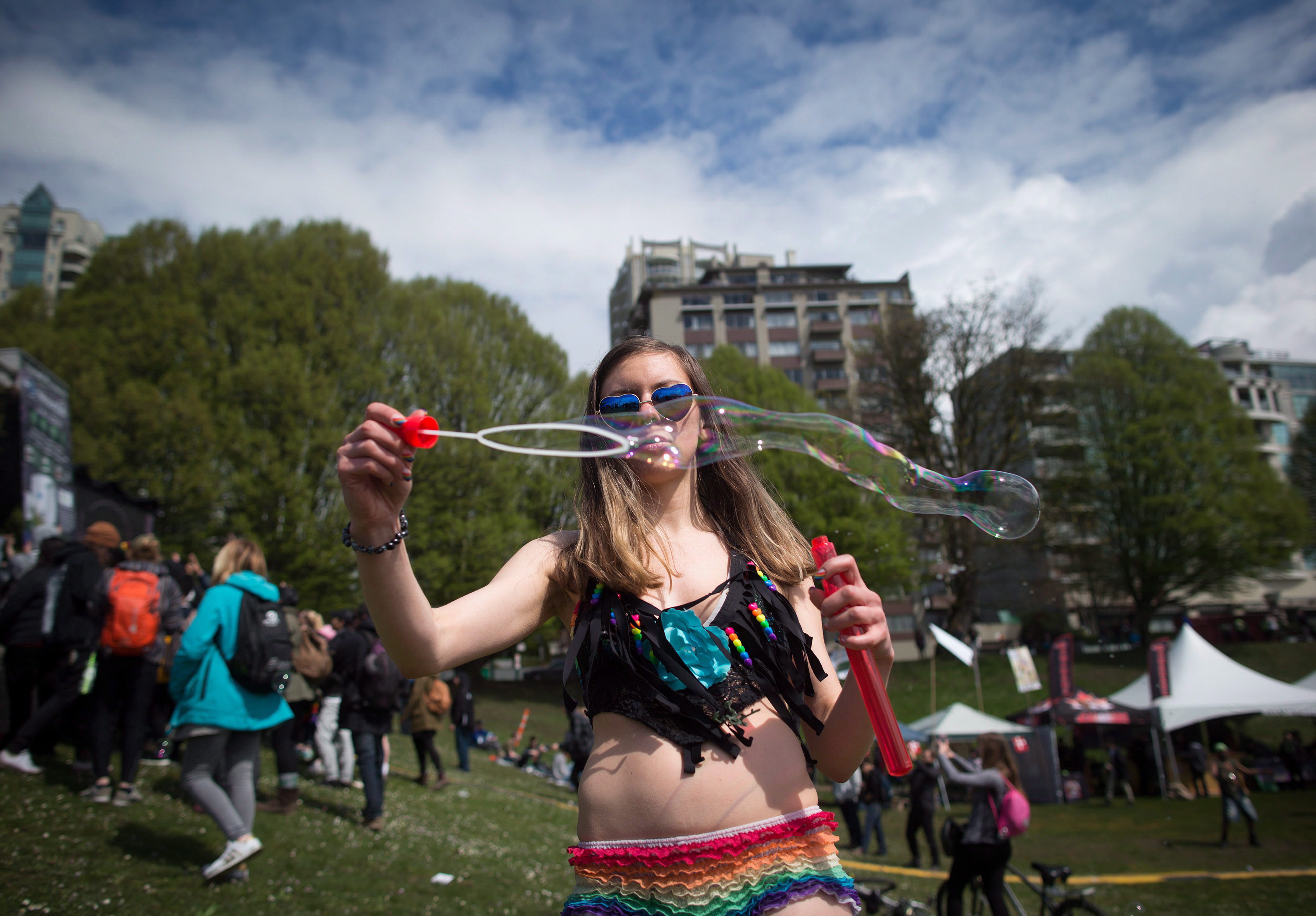
In Ontario, there’s been a series of flip-flops and gaffes in the weed retail rollout. Wynne’s government originally planned on an LCBO-controlled monopoly, with 40 stores set to open in 2018 and no public consumption. But Premier Doug Ford overturned that decision and opted for private brick-and-mortar stores with provincially-controlled online sales. His government has allowed for people to smoke weed the same places they can smoke cigarettes. While the province said there would be no cap on the number of stores, it changed its mind and decided on a 25-store cap for 2019, with retailers to be decided via a lottery. The lottery was carried out in January, giving winners a three-month window to have their stores ready by April 1. Only 10 of them were ready. As for online sales, they were plagued by delays—it took me three weeks to get my first order—and other issues, such as mislabelling, or incomplete orders, and poor customer service.
After doing $11.7 million in legal sales in October, Ontario’s numbers dropped and hovered at just under $9 million for the following three months.
“We have experience many Ontario retailers do not.”
All of the Albertan retailers I interviewed praised the Alberta Gaming and Liquor Commission for being organized and collaborative in handling the province’s rollout.
Ryan Kaye, vice-president of operations for Four20 Premium Market, which operates four stores in Alberta told VICE he’s not surprised Alberta came out ahead.
“Alberta has a very strong history of entrepreneurialism,” he said.
Four20 may consider expanding into Ontario in the future he said. A couple of Alberta chains, including Canna Cabana and Nova Cannabis, are already doing so.
“We have experience many Ontario retailers do not. We’ve learned a lot,” said Kaye.
Getting over the stigma
Growing up in Alberta freelance writer Jessica Barrett, who lives in Calgary, said weed was somewhat hard to come by—and the quality wasn’t great.
Then she moved to Vancouver for 15 years, where weed culture was omnipresent. It’s been a part of her life for a long time, though she’s not a heavy consumer.
About a year and a half ago she moved back to Alberta and since legalization she said she’s noticed more people smoking weed in the open. (Full disclosure: Barrett is a friend of mine.)
“I didn’t feel comfortable pulling a joint at a house party until it was legal and now I do. Even in my house, I would smoke pot down underneath my balcony so that the people next door wouldn’t see me and now I just do it on my patio.”
She describes the alcohol culture in Calgary as being “hardcore” but that’s not something she wants to engage in.
“Every opportunity for socialization revolves around a lot of alcohol. I found it quite relieving to be like ‘you guys do that and I’ll do this’.”
Retailers have also noticed a difference though there is still resistance.
“Maybe once a month somebody comes into a store to just express their displeasure towards legalization on the whole,” Kaye told me. “They look around and go ‘what is this?'”
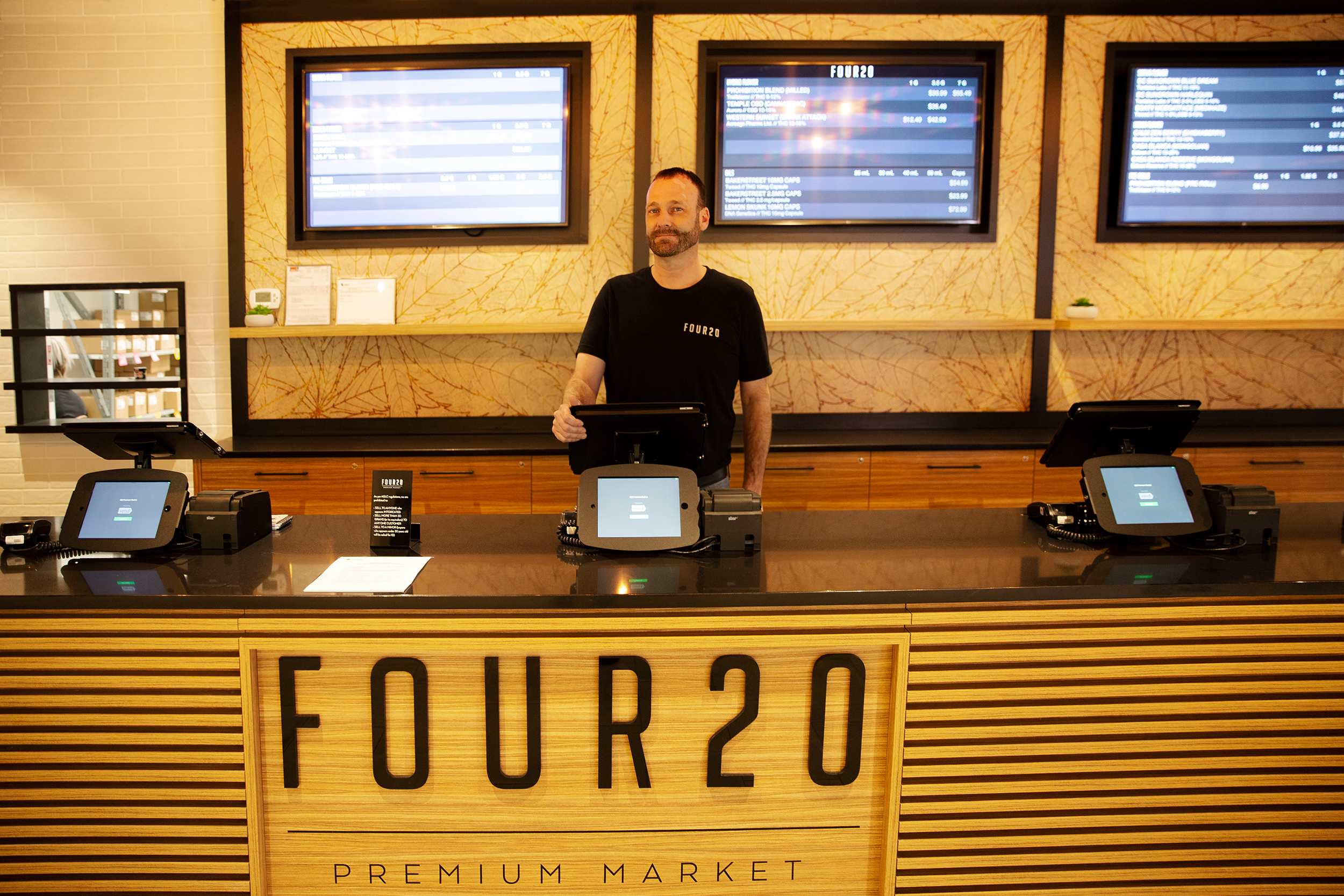
He said they’re taken aback by Four20’s sleek interior, which has a motif of black, wood, and glass. (One of their locations was contested by a neighbour—which costs $100 to do—but that concern was deemed invalid.)
Newman of Queen of Bud, said she’s noticed a marked difference in how cabbies talk about legalization now as opposed to before it took place.
“They say ‘people get in my car when they’re drunk, they puke, they yell at me, they assault me and someone who’s just smoked a joint gets in my car and maybe they want to talk politics and go through the McDonalds drive through.’”
Follow Manisha on Twitter